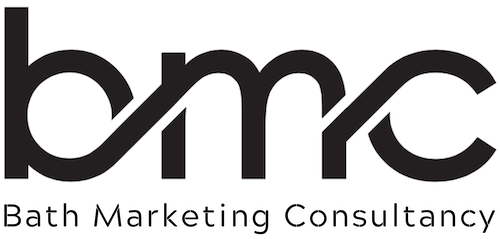In today’s digitally driven world, almost every organisation is digitally enabled to some degree. Businesses recognise the vast potential that digital marketing holds—not just to increase brand visibility, but to create meaningful engagement with their audiences and drive sustainable growth. But simply having a presence online is no longer enough. To succeed, businesses must implement carefully considered digital strategies that are targeted, adaptable, and results-focused.
What is Digital Marketing?
At its core, digital marketing is the strategic use of online channels to build brand awareness, generate leads, nurture customer relationships, and ultimately drive sales. It encompasses a wide range of tools and tactics including websites, search engine optimisation (SEO), paid advertising, email marketing, social media, and content marketing.
Effective digital marketing is not a one-off campaign. It is about creating a consistent, evolving presence that not only attracts attention but maintains and grows that attention over time.
A clearly defined digital marketing strategy provides a business with direction. It establishes where the brand sits in the market, clarifies the audience’s needs, and outlines how to gain a competitive advantage. A well-executed plan is critical—and partnering with experienced marketing experts can make all the difference.
Key Actions for More Effective Digital Marketing
Bath Marketing Consultancy outlines three essential areas businesses should focus on to improve their digital marketing efforts:
1. Listen to Your Audience
Understanding how current market conditions are impacting your clients is vital. Regular communication can offer valuable insights into emerging needs or concerns—helping you position yourself as a problem-solver rather than simply a supplier. Listening actively can also inform the tone, messaging, and content of your marketing activities, ensuring they resonate with similar prospects.
2. Build a Clear Path for Engagement
If a client is considering pausing a service or delaying a purchase, ensure there is a strong incentive for them to continue engaging. Rather than defaulting to price reductions, consider offering added value, future planning incentives, or flexible packages. Creating a framework that keeps the relationship progressing is far more sustainable and profitable in the long term.
3. Craft Engaging and Compelling Messaging
In a world where scrolling and scan-reading dominate user behaviour, your message must be impactful enough to stop people in their tracks. Content must be relevant, immediate, and engaging. Effective messaging combines strong visuals, clear value propositions, and emotional resonance to encourage action, not apathy.
Why Work With a Digital Marketing Expert?
The ever-expanding nature of digital marketing means there are endless tools and channels to consider—but navigating them effectively requires knowledge and experience. A professional digital marketing agency, such as Bath Marketing Consultancy, brings both.
A good agency will tailor strategies according to realistic objectives, budget considerations, and market positioning. Working collaboratively, they help organisations play to their strengths, allocate resources effectively, and build sustainable marketing campaigns.
Whether through SEO improvements, targeted advertising, creative content, or strategic consulting, experienced agencies can maximise return on investment and help businesses maintain momentum. It is no coincidence that the organisations investing the most in professional marketing are often the ones leading their industries.
For SMEs in particular, having even a modest, well-planned marketing budget can be transformational. Understanding your cost per lead and setting realistic conversion targets ensures that every pound spent works harder for the business.
FAQs
What does “effective marketing” really mean?
Effective marketing is when your efforts—advertising, content, outreach—deliver measurable results aligned with your business goals (e.g. leads, sales, brand awareness). It’s not just doing activity, but activity that moves the needle.
Where should I start to make my marketing more effective?
Begin with market research — understand customer needs, behaviours, and competitive landscape.
Then build a marketing plan based on those insights (goals, strategies, budget).
How often should I test or experiment with new marketing tactics?
Continuously. Marketing is not a “set and forget” endeavor. Be consistent in execution but flexible to try new channels or tactics, measure performance, and drop low-performers. (There is no permanent “magic formula.”)
How do I know which marketing channels will work best?
Use your research to find where your target customers spend time (online / offline). Test multiple channels on a small scale (e.g. social media, email, PR, events) and track results. Focus on channels that give highest return relative to cost.
How important is content in making marketing effective?
Critical. Quality content (blogs, videos, case studies) helps build authority, SEO ranking, and audience trust. Content should address your customers’ needs, challenges, and interests.
What role does consistency play in marketing success?
A big one. Consistently showing up (publishing content, posting social updates, sustaining ad campaigns) helps your brand stay visible and credible. Sporadic bursts often fail to build momentum.
Do I always need a big budget to be effective?
Not necessarily. Even with modest budgets, smart, targeted marketing (local SEO, content, email campaigns, partnerships) can yield results. The key is strategy, consistency, and measurement—not just big spend.
Conclusion
Digital marketing offers businesses of all sizes a cost-effective, results-driven route to market—but only when approached with expertise and strategic clarity.
At Bath Marketing Consultancy, the focus is always on creating practical, measurable digital strategies that work. By understanding clients’ challenges, crafting compelling engagement strategies, and executing plans with precision, Bath Marketing Consultancy helps businesses not just ride the digital wave—but lead it.



